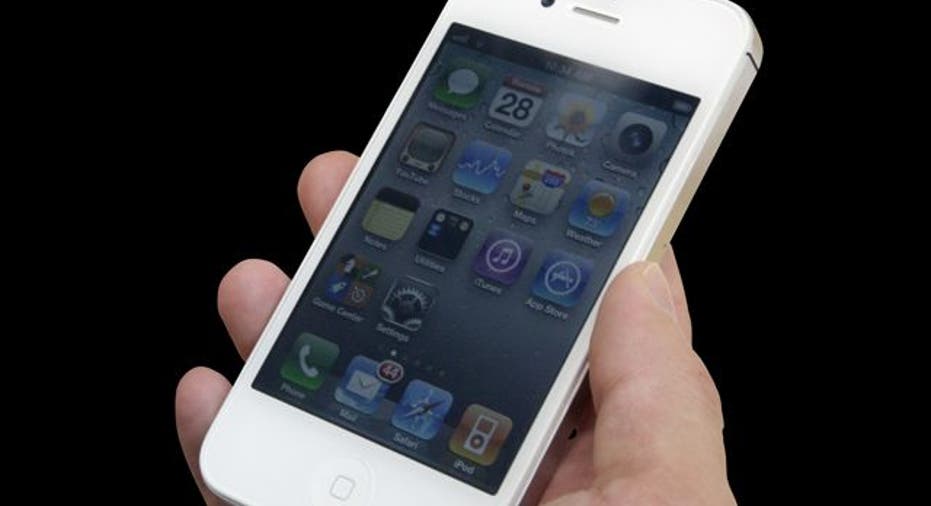Insuring Your iPhone: Now There are Rules

We're all increasingly connected, with smartphones and laptops and tablets. But what happens if your iPhone takes a dip in the toilet, or your laptop gets swiped as you're ordering a latte?
An extended warranty will protect you if there are product defects, and your renters or homeowners insurance will apply if the device is damaged or stolen, but you'll likely have to pay a steep deductible and run the risk your premiums will jump if you make a claim.
Another alternative is insurance for portable electronic devices, and the growing demand is prompting states to start regulating the industry. (See: "Is iPhone insurance worth it?”)
"The proliferation of cellphones and connectivity that everybody wants certainly gives rise to this market. It's a ready market," says Kathy Donovan, senior compliance counsel for insurance at Wolters Kluwer Financial Services.
The soaring demand for connectivity is borne out by figures from the Internet technology research firm comScore, which estimates that as of November there were 123 million smartphones in use in the United States. (See: "Nomophobia: Is your cellphone addiction covered?")
While you may only pay a couple of hundred bucks for an iPhone 5 with a two-year service contract, you're likely to pay several times that much for a replacement if you need one before the contract is up.
Ultimately, purchasing insurance for that iPhone could save you hundreds of dollars if something happens to the phone.
State governments requiring license to sell electronics insurance
Now state governments are trying to make sure consumers get what they pay for and understand what they pay for, and over the past three years about 40 states have started regulating the portable electronics insurance industry, Donovan says. The key points of the laws tend to be similar from state to state.
Colorado was one of several states where regulation of vendors of insurance for portable electronic devices went into effect this year. To sell such insurance, a vendor needs to obtain a limited license, which costs $71 for a company based in Colorado, or $112 if they're located in another state.
Like many other states, the law requires the vendor to disclose:
- The name of the insurance company that is underwriting the coverage.
- The key terms and conditions of coverage.
- Information on how you file a claim.
- That purchasing insurance is not required if you buy a portable electronic device.
- That the insurance might duplicate what already is provided through your homeowners or renters insurance policy.
- That you can cancel the insurance at any time to receive a prorated refund.
It's too early to tell the impact of the law, says Vincent Plymell, spokesperson for the Colorado Division of Insurance. "As this went into effect Jan. 1, we have not had any applicants for the license yet, so we can't say if there have been problems with vendors and this kind of insurance."
If you live in a state that regulates insurance for gadgets, you should ask any vendor selling you electronics insurance for proof of licensing before you buy a policy, says Donovan. If the insurance is sold illegally it could mean any claims you make aren't valid.
Sellers in compliance will also give consumers a brochure, outlining the details of the insurance being offered, Plymell says.
One company that has offered such insurance for several years is Worth Ave. Group, which primarily sells its insurance online and is already licensed nationwide.
Consumers love their electronic devices -- from phones to computers, to tablets to e-readers -- because they're so portable, but that portability "puts them at a high risk for damage and theft," says Gretchen Cathey, operations manager for Worth Ave. Group.
She says most Worth Ave. Group customers buy a policy to insure an individual item, such as a laptop or smartphone, although the company has a policy that allows customers to bundle their laptop and several small items, such as e-readers and cellphones, for less than $100 a year.
Generally, the cost of insurance depends on the type of product you're insuring, the amount it's insured for and your deductible, Cathey says. Many policies have just a $25 or $50 deductible.
If your device malfunctions, it's up to your warranty to cover that, but a policy from Worth Ave. Group covers theft, vandalism or accidental damage, Cathey says. (See: "What insurance do I need to cover my laptop computer?")
While your renters or homeowners insurance will apply in some of those scenarios, there could be a $1,000 limit on a claim for electronics, and you might have a deductible of $500 or $1,000, says Insurance Information Institute spokeswoman Lynne McChristian. (See: "My laptop was stolen from my car. Will my homeowners insurance pay for it?")
The original article can be found at Insurance.com:Insuring your iPhone: Now there are rules



















